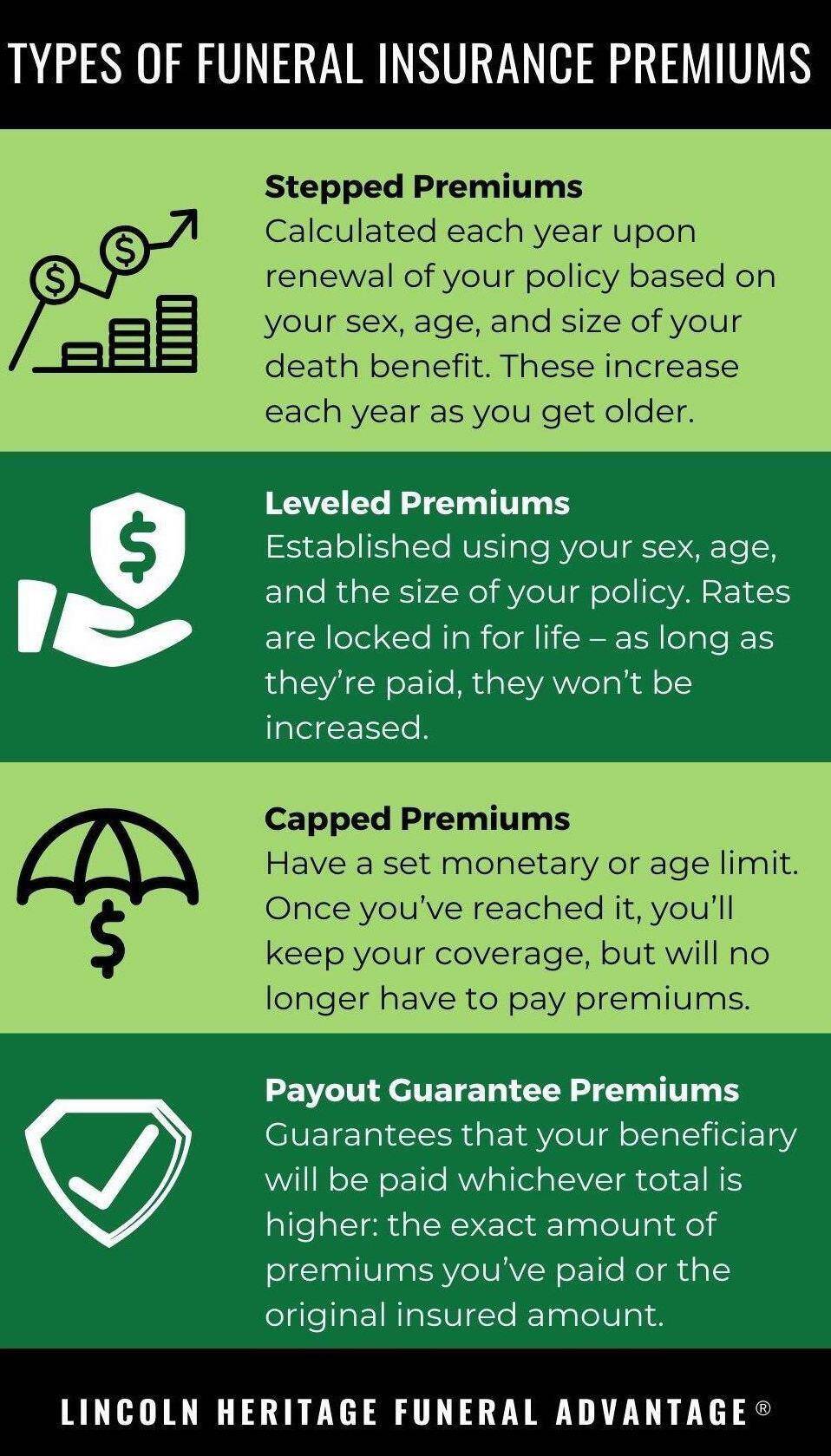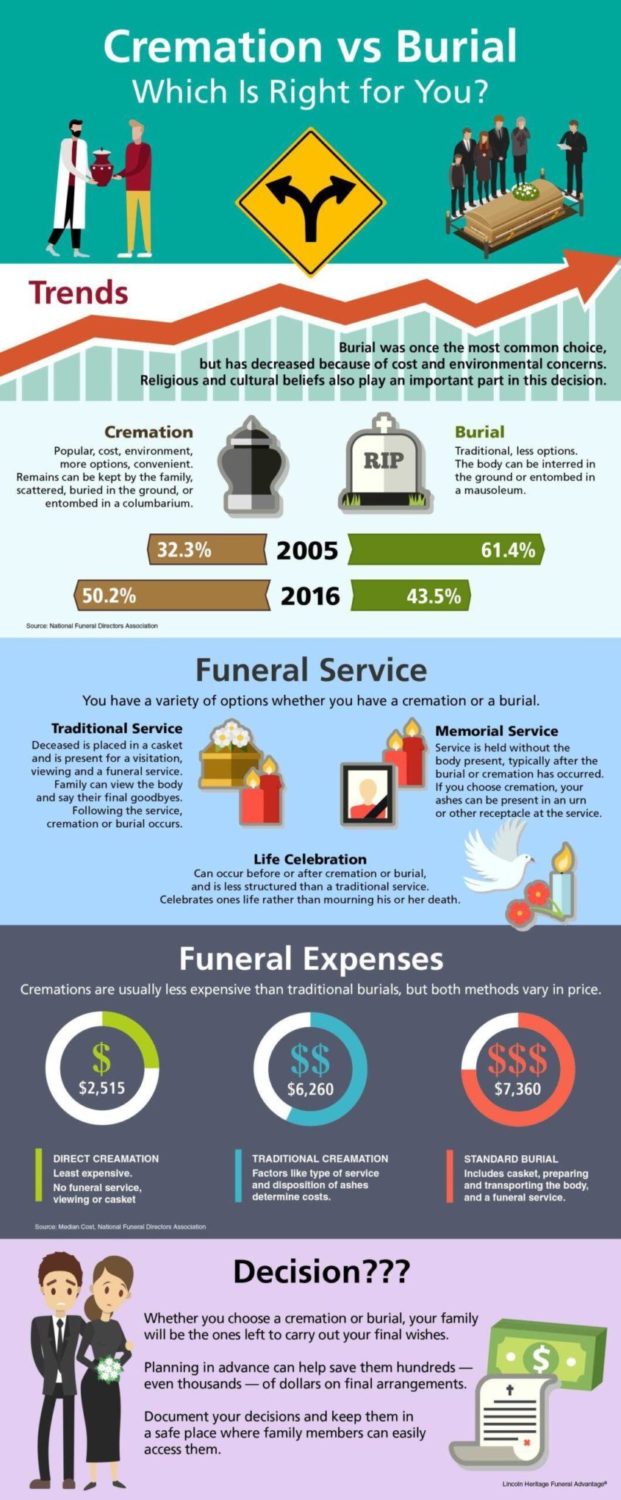2025 Guide to Funeral and Burial Insurance
What is Burial or Funeral Insurance & How Does it Work?
Burial insurance, also called funeral expense insurance, or final expense or funeral insurance,is a helpful tool for loved ones paying for a departed family member or friend’s funeral, memorial service, headstone, urn, and other final expenses. It is essentially a life insurance policy, but with a much smaller benefit amount than traditional life insurance. It’s usually purchased to cover final arrangements, but can also be used to pay the deceased’s debts, including medical bills, credit card bills, mortgage loans, and personal loans. If you think you and your family may benefit from burial insurance, it’s easy and quick to get a free quote for a final expense life insurance policy.
Table of Contents
Pros & Cons of Burial Insurance Policies
As with anything you buy, there are pros and cons to this kind of investment.
| Pros | Cons |
|---|---|
| Easier to qualify for than most life insurance plans | Lower benefit than most life insurance plans |
| Few, if any, health questions to answer | If no health questions, you won’t receive a discount for being in good health |
| No medical exam needed | Rates are slightly higher |
| Options for pre-arranging services & paying for them ahead of time | Amount paid in premiums may be more than the funeral cost |
| Usually accumulates cash value that can be used while the policy is active. | Typically little to no extra funds after funeral expenses have been paid |
The best way to decide if one of these plans is right for you is to do a little research. Reach out to a few companies for quotes and weigh your options after you’ve written out your needs and your budget.
2 Types of Funeral Insurance Plans
There are two basic kinds of funeral insurance: standard and pre-need. Both will help you plan and set aside the funds for all of your final arrangements.
Standard Funeral Insurance
Offered by life insurance companies as a whole life policy, these are paid out to beneficiaries upon the death of a loved one to pay for final arrangements, which may include:
- Funeral home services
- Transportation
- Burial plot cost
- Opening and closing of grave
- Casket prices
- Headstone, grave vault, flowers, obituary notices
- Cremation (learn more: How Does Cremation Work? and Cremation Cost Information)
- Urn costs
Your loved one is also able to work with any service providers they wish. The beneficiary may choose to apply some or all of the funds to other expenses or debts owed by the deceased, including:
- Legal services
- Medical bills
- Credit card debt
- Mortgage, car, personal, or other loans
Pre-need Funeral Insurance
Pre-need agreements are offered by life insurance companies and, in some cases, funeral homes. However, these funds are given directly to the funeral home you’ve chosen to work with instead of a designated loved one. They are paid out almost immediately after one’s passing.
Pre-need insurance can help people save money by allowing them to pay for services that may be cheaper today than they will be in the future. However, if you pay more for your plan than you do for your funeral, your loved ones won’t receive the difference (the same is true for burial insurance). That means that if you take out a $10,000 plan but your final arrangements are only valued at $9,000, the funeral home won’t give your loved ones the leftover $1,000. Learn more about what to do when a loved one dies.
How to Choose the Best Burial Insurance Plan for You
Choosing the right plan is a very personal decision, and there are many important factors you should consider when making your decision, including:
- How much coverage you need
- Whether or not the insurance provider has support services for your family
- Whether or not you want to take a medical exam
- How much the average cost of a funeral is in your area
Shopping for burial insurance is like shopping for a car. Every policy will have the same basic features, but the finer details will separate one policy from another. Make sure you choose a policy that supports the specific reason you’re insuring yourself.
4 Types of Funeral Insurance Premiums
A premium is the amount you will pay for your policy each period. In most cases, you’ll make monthly payments. Funeral insurance premiums come in a few different forms.

Stepped Premiums
These are calculated each year you renew your policy using your sex, age, and the size of your death benefit. You will pay a lower premium in the beginning, but you’ll pay more each year as you get older.
Leveled Premiums
These rates are also established using your sex, age, and the size of your policy. Your rates are usually locked in for life as long as they’re paid. They can’t be increased due to changes in age or health.
Capped Premiums
These plans have a set monetary or age limit. Once you’ve reached it, you’ll keep your coverage, but will no longer have to pay premiums. For example, if you’re capped at $10,000, you won’t have to pay any more premiums once you’ve paid that amount. If your policy has an age limit of 95, your coverage will continue once you hit that birthday, but you’ll be done paying any premiums.
Payout Guarantee Premiums
Your beneficiary is guaranteed to be paid whichever total is higher: the exact amount of premiums you’ve paid or the original insured amount.
Burial Insurance with No Waiting Period & No Exam
Many providers offer plans that are guaranteed to pay out the full death benefit amount as soon as the first payment is made and the application is approved. This means that if you make a single premium payment and then pass away, your beneficiary will receive the full amount you were covered for (as long as nothing was misrepresented to the insurer).
These plans require you to answer basic health questions when you apply. You aren’t required to take a medical exam (also called a life insurance exam), give blood or urine samples, or provide your medical history. The coverage is based on your answers to the health questions on the insurance application. It’s important to answer these questions honestly. If there are any discrepancies, your policy’s claim may be denied.
How to Get Quotes & Buy Online

Many companies that provide final expense insurance offer a free online quote and allow you to sign up on their websites. You can compare multiple policies from several companies to help you narrow down which plan is best for you.
Whether you conduct research on your own or work with a life insurance agent, it’s a good idea to get multiple funeral expense insurance quotes so you can weigh your options. Everyone has different needs, and by signing up for the first or cheapest plan you find, your loved ones may not have all of the funds they need to carry out your final wishes.
Burial Insurance Plans for Families
For the most part, there aren’t family plans for burial insurance. Remember, policies are determined by age and sex, and sometimes the applicant’s health. This makes it difficult for companies to bundle individuals together in a family plan.
If you, your partner, and/or other family members are all considering getting one of these policies, it’s worth calling a few companies to see what options are available. People also often ask if they can buy life insurance for parents.
Alternatives to Traditional Burial Insurance
Many people rely on life insurance to cover their final expenses. This can be a good option, especially if you have a large policy that will cover your final arrangements in addition to other debts and expenses your family will be responsible for after your passing. However, these types of policies have different requirements, rules, and focuses than burial or funeral insurance.
Term Life Insurance
Term life insurance covers you for only a set period of time. Once that period of time is up, you will need to purchase another policy – usually at a much higher rate – to stay covered. If you don’t renew your policy and pass away, there is no policy protection. Because we don’t know when we’re going to die and can’t predict if it will happen within the policy’s term, this isn’t a good option for paying for final expenses.
While you can renew this type of plan, they cost more the older you get, so you may end up paying more money than you would if you signed up for burial insurance. If you’re counting on using term life insurance to pay for your final arrangements, take a look at your policy to see if it can be converted to a whole life or other permanent plan. Exercising this option gets more expensive as you age, so the sooner you do it the better.
Universal Life Insurance
In most cases, universal life insurance isn’t a good option because it relies on interest rates. When interest rates increase, these policies grow in value, but as they fall, it takes more money — in the form of higher premiums — to keep them beneficial to consumers. If you have one of these policies, you may be able to transfer its value to a whole life policy.
Guaranteed Issue Whole Life Insurance
Guaranteed life insurance isn't usually an ideal option simply because it is expensive. There is no underwriting involved, which means the provider doesn’t assess the risk of offering coverage to applicants. This usually means everyone pays a much higher premium than they would with traditional whole life insurance to compensate for the risk the insurer is accepting. Because these are often appealing options to individuals who have issues finding life insurance coverage — for example, an 80-year-old man who has suffered three heart attacks — these policies can cost much more than other options.
Burial Insurance vs. Life Insurance
Burial insurance is a type of life insurance, but it has a much smaller benefit amount than traditional life insurance policies. This is because burial policies are meant for taking care of final arrangements only, while life policies are taken out to cover a wide array of needs such as income replacement.
Although payouts from burial insurance can be used for other expenses at the beneficiary’s discretion, benefit amounts are tailored to cover only final arrangements. That’s why they’re usually offered in amounts of $5,000 to $20,000, whereas traditional life insurance can offer benefits of hundreds of thousands of dollars.
Planning for a Funeral
However you’re paying for it, there are many considerations you’ll need to make when funeral planning for yourself or a loved one.

Cremation or Burial?
It’s important to first decide whether you want to be cremated or buried because the costs vary depending on your choice. Choosing your final arrangements will help you know what other items you’ll need to consider. For a funeral, you’ll want to consider the cost for a headstone, casket, and opening and closing the grave. For a cremation, you’ll need an urn or other container and decide whether you want a memorial service.
Decide on a Memorial Service
Planning a memorial service is an important part of the grieving process for most friends and family. Whether you’ve decided to be buried or cremated, the body can be present at the memorial service. Even with cremation, you can ask the funeral home you’re working with to embalm the body so it can be viewed during the service and then cremated after.
More and more people are personalizing the way they pay respects to their loved ones. Some ideas you may want to consider for celebrating a loved one’s life include:
- Asking their religious or spiritual leader to create a personalized memorial service
- Inviting guests to speak publicly to the attendees about their memories of the departed
- Selecting poems, short stories, or religious scriptures to be read in their honor
- Playing a slideshow of memorable pictures and video clips
- Requesting donations to a charitable cause that was close to their heart in lieu of sending flowers
As with the entire funeral-planning process, you and your loved ones should do whatever brings you comfort and peace.
Research and Contact Service Providers

Once you have a clear understanding of what you’re looking for, it’s time to research and reach out to service providers who can help you carry out your vision.
Whether you’re pre-planning your own arrangements or carrying out the wishes of a loved one who has recently passed away, speak with multiple funeral homes to get quotes for everything you want included. Be sure to discuss factors such as:
- How long you’ll have use of their facility
- How many guests they can accommodate
- The cost of a casket or urn
- If they can play music over speakers or offer live music, like a pianist
- If they provide food or other refreshments
- If they provide transport to the cemetery
If your loved one had a burial or funeral insurance policy to help cover the cost of their funeral, your job will be much easier. Reach out to the insurance company where they took out their policy, and they will help you understand how much benefit is available and how it can be paid.
Let Your Loved Ones Know Your Final Wishes
Planning in advance for your own final arrangements will be wasted if you don’t let your loved ones know exactly what your wishes are. Make sure you document your final arrangements and let those closest to you know so they can carry them out when the time comes.
Ideally, your end-of-life wishes should be written down, and you should have multiple physical copies in secure places that at least two of your loved ones have access to. These safe spots may be a home safe, safe deposit box, and/or with your attorney if you have one.
It’s also a good idea to have at least one heart-to-heart conversation with your parents, partner, children, or other trusted family members and friends about what you hope will happen after you pass away. It’s a difficult conversation to have and one that should be handled with care, but it’s an important discussion that will ultimately bring peace of mind to both you and your loved ones.
FAQs: Funeral Expense Insurance
Do I Need Funeral Insurance?
If you have a substantial life insurance policy that will cover your funeral in addition to your other expenses, you may not need funeral insurance. However, if you have had trouble getting a life insurance policy due to your health or age, funeral insurance may provide great financial relief to your loved ones, since you usually don’t need a medical exam to get one and they’re offered to individuals up to 85 (some companies offer policies beyond the age of 85). Coverage is usually issued based on your answers to health questions on the insurance application.
Keep in mind, though, that it may take longer for an individual to receive a life insurance payout than a funeral insurance payout depending on the insurance company. If you plan on having your funeral expenses covered by your life insurance, be sure you know all of the details about how long it will take for your loved ones to receive funds.
Does Life Insurance Cover Funeral Expenses?
Life insurance can be used to cover funeral expenses. However, since life insurance is paid to a beneficiary, it’s up to that person to decide how the funds will be used. If the deceased’s other debts are significant and the beneficiary needs to use the death benefit to pay for all or most of those expenses, they may decide to use another form of payment for the funeral.
What Does Burial Insurance Cover?
Burial insurance, also called final expense or funeral insurance, is a whole life policy that helps cover the costs of an individual’s final arrangements. It pays for expenses such as the memorial service, casket or urn, and burial or cremation. If there is any money left over from the burial policy after these services are performed, the beneficiary can use it to pay for any other expenses you may have left behind, including outstanding loans, medical bills, and legal bills.
How Much Burial Insurance Do I Need?
The average funeral in the United States ranges from about $7,000 to $10,000. This includes funeral home services, burial or cremation, a casket or an urn, and the purchase and installation of a headstone at the cemetery. You may need more or less than this to carry out your final wishes, but in general, getting a burial insurance policy for $10,000 should cover these expenses.
Does Social Security Help Pay for Funeral Expenses?
The federal government pays $255 for survivors of individuals who received to help cover final expenses, but only if they meet certain requirements
How Do I Convert a Life Insurance Policy into a Burial Policy?
You can’t convert a life insurance policy into a burial policy. Many people believe you can because life insurance policies are often used to pay for funerals, but you can’t make this change. The easiest way to make sure your life insurance policy covers your funeral expenses is to document your final wishes and share them with your loved ones in advance.
19 Best Burial & Funeral Insurance Companies
You have a lot of options when it comes to choosing burial insurance. These companies are frequently rated by consumers as being trustworthy providers. It’s important to note that only Lincoln Heritage Life Insurance Company includes free funeral planning with their final expense product Funeral Advantage.
-
- American Continental Insurance Company (Aetna)
- American International Group (AIG)
- American Memorial Life Insurance
- American National
- Americo
- Assurity
- Baltimore Life
- Fidelity
- Foresters Financial
- Gerber Life Insurance
- Kemper Senior Solutions
- Liberty Bankers Life
- Lincoln Heritage Life Insurance Company
- Mutual of Omaha
- Royal Neighbors of America
- Sagicor Life Insurance Company
- Sentinel Security Life
- Transamerica
- United Home Life
Burial Insurance for Seniors
Coverage is usually best suited for people ages 50 to 85, although most companies offer plans to those as young as 30 days of age. Most burial insurance policies are a type of life insurance called “whole life insurance.” This type of insurance has no term to it and is considered paid-up at age 100 in many cases.
Researching this type of plan should be part of every senior’s end-of-life financial planning, but you may not want to wait until you’re retired to start preparing. Plans get more expensive the older you are, and most providers have a maximum age limit for buying one, so it’s a good idea to look into getting one as early as possible. The younger you are, the cheaper your rates will be. If you’re over 50 and think you will benefit from this type of coverage, look into your options when you’re drawing up a will, updating your power of attorney (POA) and other guardianship documents, and assigning beneficiaries to your financial accounts. Learn more about affordable life insurance over 50, life insurance for seniors over 60, life insurance for seniors over 70, and life insurance for seniors over 80.
Funeral Insurance Costs & Premiums
Insurance premiums are based on your age, sex, the size of your policy, and your current health. Everyone that seeks coverage — and every company that provides it — is different, so be sure to ask for a personalized quote from any provider you’re considering. Learn more about the average funeral cost to estimate how much coverage you’ll want.
Here is a summary of what you can expect to pay in premiums based on your age and sex.
Monthly Premium Rates for Men*
| $5,000 Death Benefit | ||
| Age | Determined 'In Good Health' by Insurer | No Health Questions Asked |
|---|---|---|
| 50 | $16 | $20 |
| 55 | $19 | $24 |
| 60 | $23 | $29 |
| 65 | $29 | $35 |
| 70 | $38 | $44 |
| 75 | $51 | $63 |
| 80 | $65 | $82 |
* Estimated rates do not reflect the rates of any particular life insurance company.
| $10,000 Death Benefit | ||
| Age | Determined 'In Good Health' by Insurer | No Health Questions Asked |
|---|---|---|
| 50 | $30 | $40 |
| 55 | $35 | $46 |
| 60 | $43 | $57 |
| 65 | $56 | $68 |
| 70 | $74 | $88 |
| 75 | $100 | $125 |
| 80 | $126 | $162 |
* Estimated rates do not reflect the rates of any particular life insurance company.
Monthly Premium Rates for Women*
| $5,000 Death Benefit | ||
| Age | Determined 'In Good Health' by Insurer | No Health Questions Asked |
|---|---|---|
| 50 | $14 | $15 |
| 55 | $16 | $18 |
| 60 | $18 | $24 |
| 65 | $22 | $28 |
| 70 | $28 | $35 |
| 75 | $38 | $46 |
| 80 | $48 | $64 |
* Estimated rates do not reflect the rates of any particular life insurance company.
| $10,000 Death Benefit | ||
| Age | Determined 'In Good Health' by Insurer | No Health Questions Asked |
|---|---|---|
| 50 | $25 | $28 |
| 55 | $28 | $36 |
| 60 | $33 | $45 |
| 65 | $41 | $55 |
| 70 | $53 | $69 |
| 75 | $72 | $90 |
| 80 | $93 | $126 |
* Estimated rates do not reflect the rates of any particular life insurance company.
As you can see, women usually pay less than men for the same coverage. Rates for both men and women increase with age, and you can save a significant amount of money by answering health questions on your application.
Average Funeral Expense Coverage
Coverage can range anywhere between $5,000 and $20,000, with most policies falling around $10,000 for both men and women. When deciding on the amount you’ll need, it’s important to consider what kinds of final arrangements you want, as well as if you want enough left over to cover bills and other debts.


